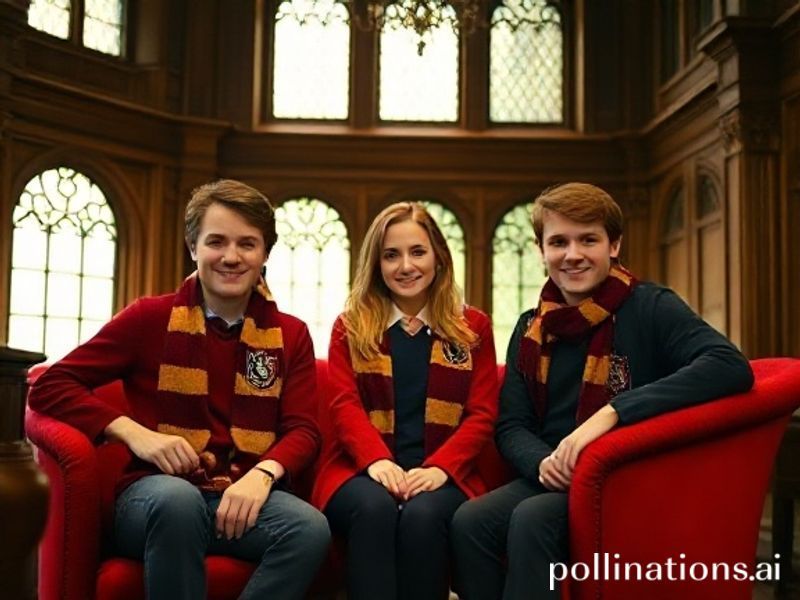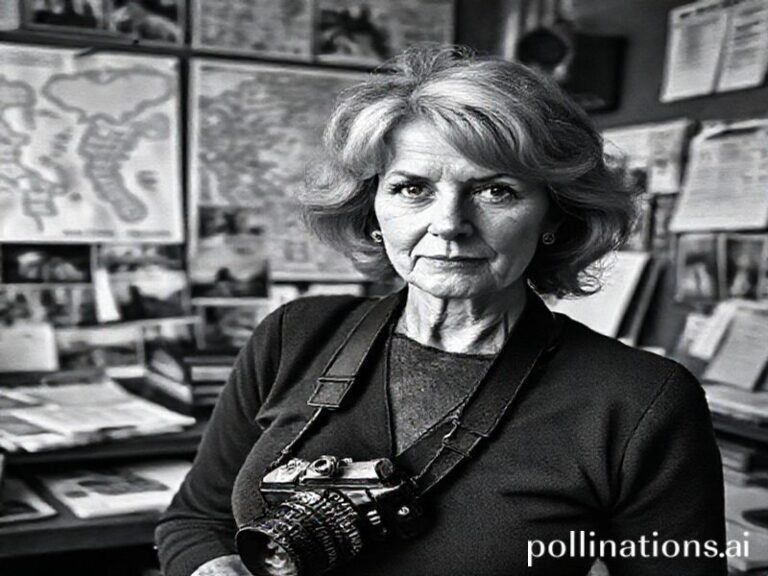The Hogwarts Diaspora: How Harry Potter’s Child Stars Became Accidental Global Overlords
The Hogwarts Diaspora: How a Cast of Child Wizards Grew Up to Run the World (or at Least Its Meme Cycle)
By the time you finish this sentence, someone in Jakarta will have tattooed Daniel Radcliffe’s 2004 haircut on their calf, a São Paulo startup will have launched a Potter-themed fintech, and a Brussels think tank will be debating whether Voldemort’s economic policy qualifies as neoliberal. Such is the gravitational pull of the original Harry Potter cast, a group of Brits who accidentally became the United Nations of nostalgia.
Let’s be honest: the eight-film saga was never just a British cultural export; it was a Trojan horse full of pubescent capitalism. Warner Bros. shipped the franchise to 195 countries, then watched as local elites re-skinned it for every conceivable market. In China, the Ministry of Magic is a metaphor for opaque bureaucracy; in Nigeria, it’s a parable of neocolonial resource extraction; in France, it’s simply further proof that the English can’t be trusted around pastries. The cast—Radcliffe, Watson, Grint, and the sprawling ensemble—became the faces on these interpretive trading cards, their cheekbones stamped with every contradictory meaning the planet could devise.
Consider the sheer geopolitical utility of these former minors. Emma Watson’s UN Women ambassadorship turned Hermione Granger into a soft-power Swiss Army knife: useful for everything from Saudi driving-campaign photo-ops to awkward Davos panels on blockchain feminism. Rupert Grint, meanwhile, became the patron saint of reluctant stardom, his post-Potter career a master class in how to monetize chronic indifference: ice-cream trucks, collectible dragons, a TV show about a snitch of a different sort. Daniel Radcliffe weaponized his own typecasting, sprinting from Broadway to indie film like a man fleeing a Dementor of perpetual boy-wizarddom. Each trajectory offers a miniature atlas of fame’s post-colonial supply chains: British raw talent refined in Hollywood, repackaged in Seoul, memed in Lagos.
And then, of course, there’s the cottage industry of unhappiness. J.K. Rowling’s Twitter feed has become a sort of Brexit in miniature, splitting fandoms along freshly redrawn borders. Cast members have been drafted into this culture war like reluctant Quidditch players forced to choose Seeker or Seeker-not. Eddie Redmayne (technically Fantastic Beasts, but let’s not pretend taxonomy matters anymore) issued a politely worded corrective; Watson opted for strategic emoji diplomacy; Grint simply muttered “I like quiet” and retreated to his ice-cream truck, which now looks like a mobile Geneva Convention. Their statements ricochet across continents, translated into 40 languages, dissected on TikTok by teens who’ve never read the books but know exactly which house they’d cancel.
Meanwhile, the global economy keeps minting fresh galleons from their aging faces. Tourism New Zealand markets “Middle-earth meets Hogwarts” mash-up tours; Dubai’s newest theme park features a motion-simulated broomstick ride that costs roughly a Moldovan teacher’s monthly salary. The actors collect royalties in currencies ranging from Polish zloty to Chilean peso, a passive-income United Colors of Benetton. Inflation-proof, crisis-proof, pandemic-adjacent: if the world ends tomorrow, archaeologists will still unearth a Bulgarian vending machine dispensing chocolate frogs stamped with Matthew Lewis’s post-pubescent torso.
Yet the real magic is how thoroughly the cast has merged with our planetary memory palace. Search “Harry Potter cast” in any language and Google auto-completes with local scandals: Radcliffe’s Japanese whisky ad, Watson’s Hindi literacy campaign, Grint’s Serbian energy-drink sponsorship. They are no longer actors but floating signifiers, Rorschach blots onto which we project our national anxieties about growing up, selling out, or accidentally retweeting transphobia. The films taught us that names have power; the subsequent decades taught us that faces have currency.
So when the inevitable reboot arrives—streaming exclusively on a yet-to-be-launched Kazakh satellite platform—remember that the original cast isn’t fading. They’re simply being re-circulated, like counterfeit galleons laundered through the Gringotts of collective memory. Somewhere, a 12-year-old in Uruguay is discovering Prisoner of Azkaban for the first time, unaware that the actors onscreen are older than her parents were when they fell under the same spell. The circle of merchandising life continues, and we are all, willingly or not, enrolled in its endless N.E.W.T.-level exam on the economics of enchantment.
Class dismissed. Ten points from whichever country just imposed a new Potter-themed tariff.







